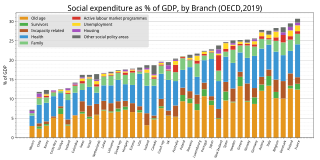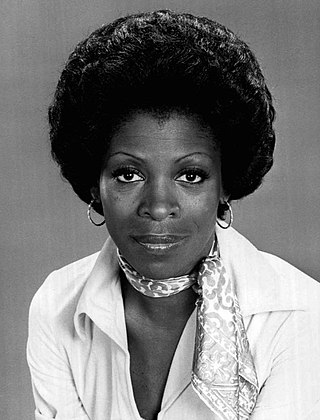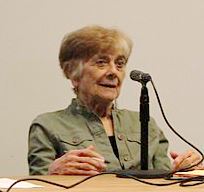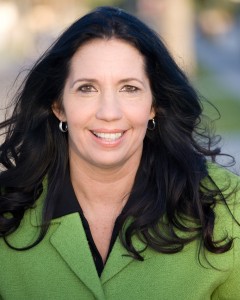
Chicago is a 2002 American musical black comedy crime film based on the 1975 stage musical of the same name which in turn originated in the 1926 play of the same name. It explores the themes of celebrity, scandal, and corruption in Chicago during the Jazz Age. The film stars an ensemble cast led by Renée Zellweger, Catherine Zeta-Jones, and Richard Gere. Chicago centers on Roxie Hart (Zellweger) and Velma Kelly (Zeta-Jones), two murderers who find themselves in jail together awaiting trial in 1920s Chicago. Roxie, a housewife, and Velma, a vaudevillian, fight for the fame that will keep them from the gallows. The film marks the directorial debut of Rob Marshall, who also choreographed the film, and was adapted by screenwriter Bill Condon, with music by John Kander and lyrics by Fred Ebb.

A welfare state is a form of government in which the state protects and promotes the economic and social well-being of its citizens, based upon the principles of equal opportunity, equitable distribution of wealth, and public responsibility for citizens unable to avail themselves of the minimal provisions for a good life.

The war on poverty is the unofficial name for legislation first introduced by United States President Lyndon B. Johnson during his State of the Union address on January 8, 1964. This legislation was proposed by Johnson in response to a national poverty rate of around nineteen percent. The speech led the United States Congress to pass the Economic Opportunity Act, which established the Office of Economic Opportunity (OEO) to administer the local application of federal funds targeted against poverty. The forty programs established by the Act were collectively aimed at eliminating poverty by improving living conditions for residents of low-income neighborhoods and by helping the poor access economic opportunities long denied from them.

Welfare, or commonly social welfare, is a type of government support intended to ensure that members of a society can meet basic human needs such as food and shelter. Social security may either be synonymous with welfare, or refer specifically to social insurance programs which provide support only to those who have previously contributed, as opposed to social assistance programs which provide support on the basis of need alone. The International Labour Organization defines social security as covering support for those in old age, support for the maintenance of children, medical treatment, parental and sick leave, unemployment and disability benefits, and support for sufferers of occupational injury.

Roxie Albertha Roker was an American actress who portrayed Helen Willis on the CBS sitcom The Jeffersons (1975–1985), half of the first interracial couple to be shown on regular prime time television. Roker is the mother of rock musician Lenny Kravitz and paternal grandmother of actress Zoë Kravitz.

Social policy is a plan or action of government or institutional agencies which aim to improve or reform society.

Edith Abbott was an American economist, statistician, social worker, educator, and author. Abbott was born in Grand Island, Nebraska. Abbott was a pioneer in the profession of social work with an educational background in economics. She was a leading activist in social reform with the ideals that humanitarianism needed to be embedded in education. Abbott was also in charge of implementing social work studies to the graduate level. Though she was met with resistance on her work with social reform at the University of Chicago, she ultimately was successful and was elected as the school's dean in 1924, making her one of the first female deans in the United States. Abbott was foremost an educator and saw her work as a combination of legal studies and humanitarian work which shows in her social security legislation. She is known as an economist who pursued implementing social work at the graduate level. Her younger sister was Grace Abbott.
Social work will never become a profession—except through the professional schools

The Columbia University School of Social Work is the graduate school of social work of Columbia University. It is the nation's oldest social work program, with roots extending back to 1898, when the New York Charity Organization Society's first summer course was announced in The New York Times and began awarding the Master of Science (MS) degree in 1940. With an enrollment of over 900, it is one of the largest social work schools in the United States. The combination of its age and size has led to the School becoming a repository for much of the reference literature in the social work field.
Workfare is a governmental plan under which welfare recipients are required to accept public-service jobs or to participate in job training. Many countries around the world have adopted workfare to reduce poverty among able-bodied adults, however their approaches to execution vary. The United States and United Kingdom are two such countries utilizing workfare, albeit with different backgrounds.

Temporary Assistance for Needy Families is a federal assistance program of the United States. It began on July 1, 1997, and succeeded the Aid to Families with Dependent Children (AFDC) program, providing cash assistance to indigent American families through the United States Department of Health and Human Services. TANF is often simply referred to as welfare.

The Personal Responsibility and Work Opportunity Reconciliation Act of 1996 (PRWORA) is a United States federal law passed by the 104th United States Congress and signed into law by President Bill Clinton. The bill implemented major changes to U.S. social welfare policy, replacing the Aid to Families with Dependent Children (AFDC) program with the Temporary Assistance for Needy Families (TANF) program.
A "welfare queen" is a derogatory term used in the United States to refer to women who misuse or collect excessive welfare payments through fraud, child endangerment, or manipulation. Reporting on welfare fraud began during the early 1960s, appearing in general-interest magazines such as Reader's Digest. The term originates from media reporting in 1974 about Linda Taylor that was then popularized by journalists covering Ronald Reagan's 1976 presidential bid since Reagan often repeated Taylor's story on the campaign trail.

Frances Fox Piven is an American professor of political science and sociology at The Graduate Center, City University of New York, where she has taught since 1982.
The social safety net (SSN) consists of non-contributory assistance existing to improve lives of vulnerable families and individuals experiencing poverty and destitution. Examples of SSNs are previously-contributory social pensions, in-kind and food transfers, conditional and unconditional cash transfers, fee waivers, public works, and school feeding programs.
The welfare trap theory asserts that taxation and welfare systems can jointly contribute to keep people on social insurance because the withdrawal of means-tested benefits that comes with entering low-paid work causes there to be no significant increase in total income. According to this theory, an individual sees that the opportunity cost of getting a better paying job is too great for too little a financial return, and this can create a perverse incentive to not pursue a better paying job.

In the United States, federal and state social programs include cash assistance, health insurance, food assistance, housing subsidies, energy and utilities subsidies, and education and childcare assistance. Similar benefits are sometimes provided by the private sector either through policy mandates or on a voluntary basis. Employer-sponsored health insurance is an example of this.

Star Parker is an American syndicated columnist, Republican politician, author, TV Host, and conservative political activist. In 1995, she founded the Center for Urban Renewal and Education (CURE). In 2010, she was the unsuccessful Republican nominee for the United States House of Representatives in California's 37th District.
Welfare dependency is the state in which a person or household is reliant on government welfare benefits for their income for a prolonged period of time, and without which they would not be able to meet the expenses of daily living. The United States Department of Health and Human Services defines welfare dependency as the proportion of all individuals in families which receive more than 50 percent of their total annual income from Temporary Assistance for Needy Families (TANF), food stamps, and/or Supplemental Security Income (SSI) benefits. Typically viewed as a social problem, it has been the subject of major welfare reform efforts since the mid-20th century, primarily focused on trying to make recipients self-sufficient through paid work. While the term "welfare dependency" can be used pejoratively, for the purposes of this article it shall be used to indicate a particular situation of persistent poverty.
Mimi Abramovitz is an American author, educator and activist. Abramovitz's work focuses on civil and welfare rights of those living in the United States, especially women.

Cheri Lynn Honkala is an American anti-poverty advocate, co-founder of the Kensington Welfare Rights Union (KWRU) and co-founder and National Coordinator of the Poor People's Economic Human Rights Campaign. She has been a noted advocate for human rights in the United States and internationally. She is the mother of actor Mark Webber.













